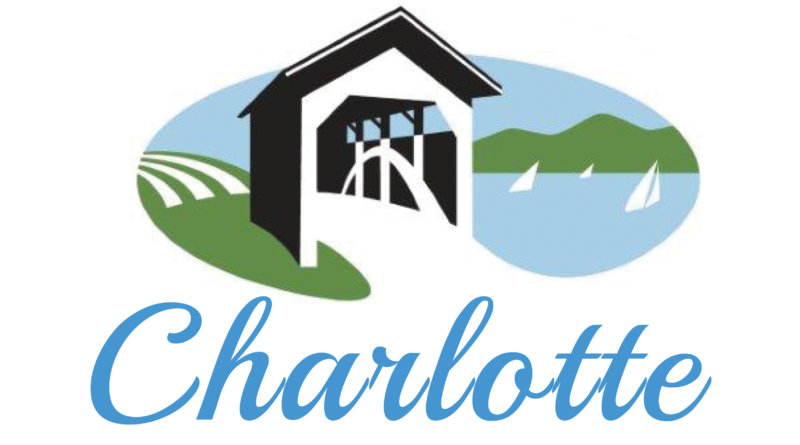Commentary: Was budget vote failure the canary in the mine?
The good news is Charlotters are becoming increasingly engaged about local issues. The skeptic in me wonders for how long.
The failure of the proposed budget to pass, primarily due to compensation and benefits, got people talking. Why? Because it has a direct impact on one’s finances and relative income compared to those who work for the town.
During selectboard meetings and on Front Porch Forum posts there was also discussion about the town’s wealth, countered by those who are not wealthy. Most of the discussion focused on town expenses with little time spent on the elephant in the room — school tax. There was cursory discussion about finding ways to generate additional income beyond relying on the golden egg that is Thompnon’s Point.
Only so much can be squeezed out of a town which is barely growing. Sooner or later, something has to give, or break. Was the failure of the first budget the canary in the mine? Time will tell.
Charlotte’s future was the topic at two events I attended over the last month. Both focused on building consensus to develop a roadmap for the town’s future. The first on March 19, held by Braver Angels, was a four-hour exercise hosted by the Charlotte Library.“The Common Ground Workshop” was described by the library as “an event that brings together people with differing opinions on land use and development, a topic on the minds of many Charlotters.” Clearly it was on the minds of those in attendance. How far this extends into the community, I wonder.
There were about 20 participants, all eager to talk land use and the town’s future. The goal was to reach general points of agreement and then carry these action items further into the community.
Braver Angels states on its website: “Launched in 2016, Braver Angels is a national movement to bring liberals, conservatives and others together at the grassroots level — not to find centrist compromise, but to find one another as citizens. Through workshops, debates, campus engagement and more, Braver Angels helps Americans understand each other beyond stereotypes, form community alliances and reduce the vitriol that poisons our civic culture.”
There certainly wasn’t any vitriol at this workshop, and I had no sense of strong political polarity amongst the group.
 My takeaway was a lengthy discussion concluded with agreed-upon concerns and goals of a general nature and ones which have been on the minds of those of us concerned about development: preventing sprawl in the rural district; lack of growth in the village districts; expensive housing; lack of municipal infrastructure (water and wastewater) to support village growth; protecting areas of high public value including farmland; and needed changes to the land-use regulations. As the old cliche goes, the devil is in the details, and that’s where things get complicated, and very localized.
My takeaway was a lengthy discussion concluded with agreed-upon concerns and goals of a general nature and ones which have been on the minds of those of us concerned about development: preventing sprawl in the rural district; lack of growth in the village districts; expensive housing; lack of municipal infrastructure (water and wastewater) to support village growth; protecting areas of high public value including farmland; and needed changes to the land-use regulations. As the old cliche goes, the devil is in the details, and that’s where things get complicated, and very localized.
The second event was April 1 at which Community Heart and Soul hosted an organizational meeting at the Charlotte Library. This event was a training session that ran about two hours. The purpose was to provide an overview of the roughly two-year process which consists of four phases. This meeting focused primarily on phase 1. The Heart and Soul Community Workbook states that in phase 1 the task is to “gather partners and a diverse team of volunteers. Together, you will use your collective hopes for the future to set goals and build awareness, interest and commitment across the community. This is also an important time to identify who lives, works and plays in the community and to develop a communications plan to reach them all.”
This meeting was well attended and a good follow-up to the two initial meetings held a month or so earlier at the Congregational Church and the senior center. Attendees were eager to begin the process and spread the word.
Back in September 2022, Taylor Newton, planning program manager of the Chittenden County Regional Planning Commission, gave a presentation to both the planning commission and selectboard titled “Audit of Charlotte Village Regulations.” Newton, based on his assessment of the Charlotte Town Plan and Land-Use Regulations, made numerous recommended changes to the land-use regulations to stimulate growth in the village districts. These included reducing the number of districts and conditional uses, excessive dimensional standards and excessive subdivision standards, and the need for infrastructure: wastewater, water, stormwater treatment and streets and pedestrian network. Newton’s next step was to “create a multi-year planning work program for the town of Charlotte to support village planning.”
Newton will do just that on May 4 before the planning commission and May 8 before the selectboard. At these meetings he will present a draft timeline and work plan for fiscal years 2024-26 to provide planning support to Charlotte for land-use regulations and town plan work. I encourage anyone interested in the future of our town to attend these meetings.
Our community is currently engaged in many issues and, I think, boiled down to its most basic, is the future of Charlotte. An engaged community, including all the governing bodies and committees, should look ahead and develop goals and detailed plans for the future.
(Peter Joslin is a former chair of the planning commission and a member of The Charlotte News board of directors. The opinions expressed here are his own and not necessarily those of the board.)

